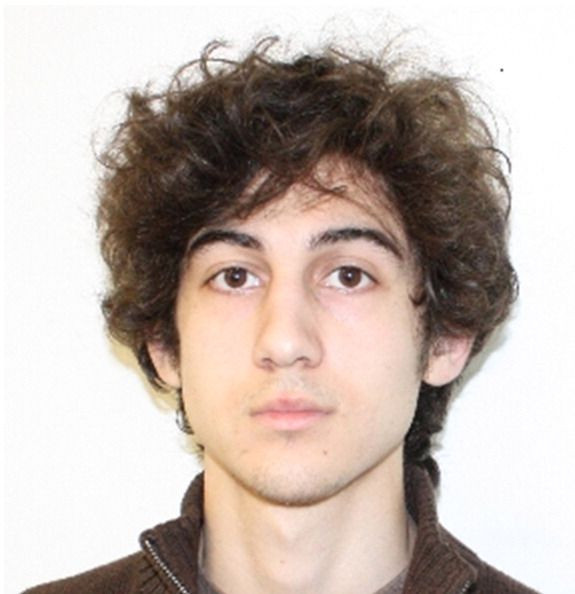Boston Marathon Bombing Trial Verdict: Dzhokhar Tsarnaev Found Guilty Of Using Weapons Of Mass Destruction

The jury for the Boston Marathon bombing trial returned a guilty verdict Wednesday against Dzhokhar Tsarnaev on all 30 federal criminal counts, including using weapons of mass destruction, after a little more than 11 hours of deliberation. The trial will now move to its penalty phase, where jurors will decide whether to sentence Tsarnaev to death or remand him to prison for the remainder of his life.
The U.S. attorney says no date for the penalty phase has been set.
Seventeen of the 30 criminal counts against 21-year-old Tsarnaev carry the possibility of the death penalty. He faced charges that included bombing a public place, conspiracy to use a weapon of mass destruction, use of a weapon of mass destruction resulting in death, malicious destruction of property, carjacking and possession of a firearm, according to WBUR in Boston.
The trial centered around why, not if, Tsarnaev had participated in the bombing that killed three people -- marathon bystanders Martin Richard, Lu Lingzi and Krystal Campbell -- and wounded more than 260 at the 2013 Boston Marathon. He and his older brother, Tamerlan Tsarnaev, were also responsible for the death of Massachusetts Institute of Technology police officer Sean Collier following the bombings.
The prosecution argued that Tsarnaev was a self-radicalized Islamist who wanted to attack America, presenting 92 witnesses who gave often harrowing testimony about the bombings. One of them was Bill Richard, father to 8-year-old Martin, who died in the explosion, and 6-year-old Jane, who lost one of her legs. He recounted the last time he saw Martin alive. "I saw a little boy who had been severely damaged by an explosion, and I just knew, from what I saw, there was no chance," Richard said.
The evidence against Tsarnaev included a digital copy of Inspire, an al Qaeda magazine that includes bomb-making instructions, and his political tweets, all of which the state said indicated he was a willing partner with his brother in the crimes.
In the defense's opening statement, attorney Judy Clarke did not contest those facts, openly admitting, "it was him." But she asserted Tsarnaev was coerced into the plan by Tamerlan, according to the New York Times.
The jurors will likely hear a lot more about Tamerlan Tsarnaev's influence on his younger sibling in the coming days. Judge George O'Toole granted a prosecution motion last month that limited the amount of evidence about the brothers' relationship during the trial's guilt phase. Those details are all but sure to emerge during the sentencing phase. "It matters because we are entitled to know the full picture," Clarke said in her closing statement. "We don’t deny that Jahar [Dzhokhar] fully participated in the events, but if not for Tamerlan, it would not have happened."
On Tuesday, the jury -- seven white women and five white men -- began deliberating at 9:12 a.m., according to several reporters on the scene. Tsarnaev's lawyers had long argued the suspect could not get a fair trial in Boston due to juror bias, but O'Toole repeatedly denied their requests to move the proceedings elsewhere.
They returned a verdict at 2:10 p.m. EDT using this form.
The courtroom was filled during the verdict's reading with local officials and relatives of bombing victims, including Boston Police Commissioner William B. Evans, Martin Richard's parents, members of the Collier family and Liz Norden, a mother whose two sons each lost a leg in the bombings.
Prior to the verdict being read, Tsarnaev entered the courtroom acting no different than he had during the course of the trial, crossing his arms and at one point smiling at his lawyers while standing with his defense team and glancing at the jury, according to Boston Globe reporter Patricia Wen.
© Copyright IBTimes 2025. All rights reserved.






















